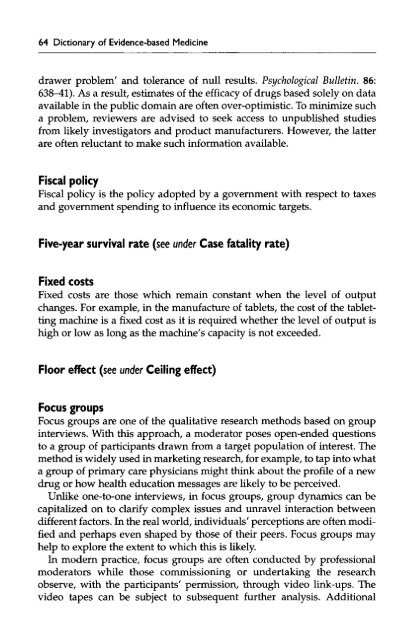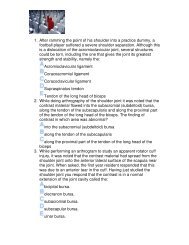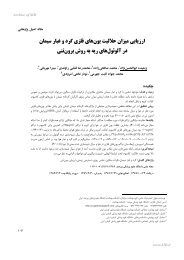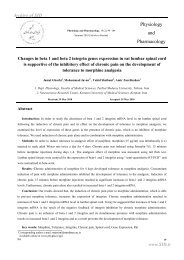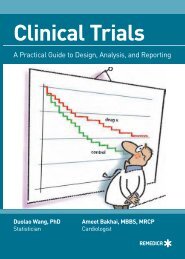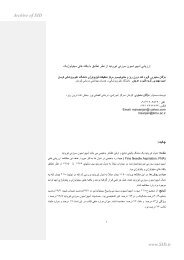Dictionary of Evidence-based Medicine.pdf
Dictionary of Evidence-based Medicine.pdf
Dictionary of Evidence-based Medicine.pdf
You also want an ePaper? Increase the reach of your titles
YUMPU automatically turns print PDFs into web optimized ePapers that Google loves.
64 <strong>Dictionary</strong> <strong>of</strong> <strong>Evidence</strong>-<strong>based</strong> <strong>Medicine</strong><br />
drawer problem' and tolerance <strong>of</strong> null results. Psychological Bulletin. 86:<br />
638^41). As a result, estimates <strong>of</strong> the efficacy <strong>of</strong> drugs <strong>based</strong> solely on data<br />
available in the public domain are <strong>of</strong>ten over-optimistic. To minimize such<br />
a problem, reviewers are advised to seek access to unpublished studies<br />
from likely investigators and product manufacturers. However, the latter<br />
are <strong>of</strong>ten reluctant to make such information available.<br />
Fiscal policy<br />
Fiscal policy is the policy adopted by a government with respect to taxes<br />
and government spending to influence its economic targets.<br />
Five-year survival rate (see under Case fatality rate)<br />
Fixed costs<br />
Fixed costs are those which remain constant when the level <strong>of</strong> output<br />
changes. For example, in the manufacture <strong>of</strong> tablets, the cost <strong>of</strong> the tabletting<br />
machine is a fixed cost as it is required whether the level <strong>of</strong> output is<br />
high or low as long as the machine's capacity is not exceeded.<br />
Floor effect (see under Ceiling effect)<br />
Focus groups<br />
Focus groups are one <strong>of</strong> the qualitative research methods <strong>based</strong> on group<br />
interviews. With this approach, a moderator poses open-ended questions<br />
to a group <strong>of</strong> participants drawn from a target population <strong>of</strong> interest. The<br />
method is widely used in marketing research, for example, to tap into what<br />
a group <strong>of</strong> primary care physicians might think about the pr<strong>of</strong>ile <strong>of</strong> a new<br />
drug or how health education messages are likely to be perceived.<br />
Unlike one-to-one interviews, in focus groups, group dynamics can be<br />
capitalized on to clarify complex issues and unravel interaction between<br />
different factors. In the real world, individuals' perceptions are <strong>of</strong>ten modified<br />
and perhaps even shaped by those <strong>of</strong> their peers. Focus groups may<br />
help to explore the extent to which this is likely.<br />
In modern practice, focus groups are <strong>of</strong>ten conducted by pr<strong>of</strong>essional<br />
moderators while those commissioning or undertaking the research<br />
observe, with the participants' permission, through video link-ups. The<br />
video tapes can be subject to subsequent further analysis. Additional


